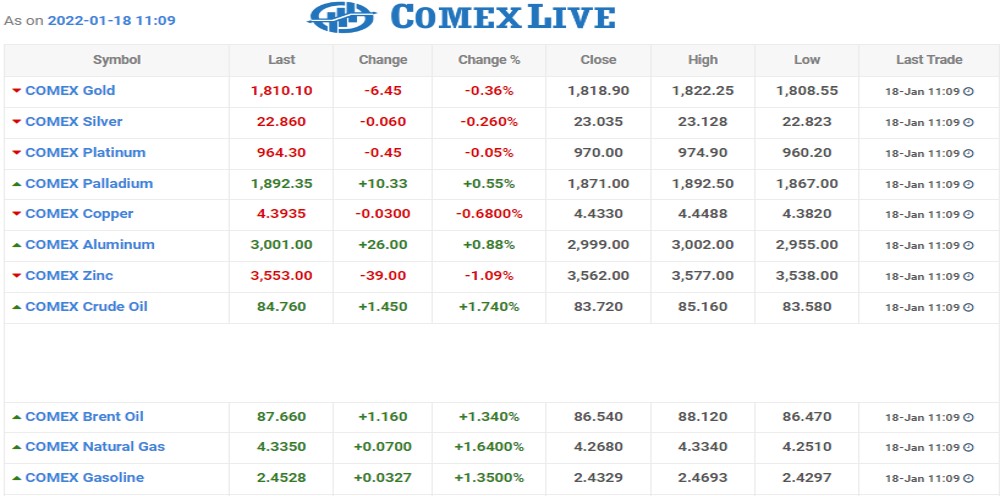
Oil prices edged up on Monday as investors bet supply will remain tight amid restrained output by major producers with global demand unperturbed by the omicron coronavirus variant.
Brent crude futures gained 9 cents, or 0.1%, to $86.15 a barrel by 0539 GMT. Earlier in the session, the contract touched its highest since Oct. 3, 2018 at $86.71.
U.S. West Texas Intermediate crude was up 29 cents, or 0.4%, at $84.11 a barrel, after hitting $84.78, the highest since Nov. 10, 2021, earlier in the session.
The gains followed a rally last week when Brent rose more than 5% and WTI climbed over 6%.
Frantic oil buying, driven by supply outages and signs the omicron variant will not be as disruptive as feared for fuel demand, has pushed some crude grades to multi-year highs, suggesting the rally in Brent futures could be sustained a while longer, traders said.
“The bullish sentiment is continuing as (producer group) OPEC+ is not providing enough supply to meet strong global demand,” said Toshitaka Tazawa, an analyst at Fujitomi Securities Co Ltd.
“If (investment) funds increase allocation weight for crude, prices could reach their highs of 2014,” he said.
The Organization of the Petroleum Exporting Countries, Russia and their allies, together known as OPEC+, are gradually relaxing output cuts implemented when demand collapsed in 2020.
But many smaller producers cannot raise supply and others have been wary of pumping too much oil in case of renewed Covid-19 setbacks.
“What comes in view next is the summer demand bump, especially in Europe and the U.S., which could be bigger than last year’s, if the growing hope around the omicron finally turning Covid from pandemic to endemic proves right,” said Vandana Hari, energy analyst at Vanda Insights.
Festering geopolitical threats to supply are also supporting bullish sentiment, Hari said.
U.S. officials voiced fears on Friday that Russia was preparing to attack Ukraine if diplomacy failed. Russia, which has amassed 100,000 troops on Ukraine’s border, released pictures of its forces on the move.
The U.S. government has held talks with several international energy companies on contingency plans for supplying natural gas to Europe if conflict between Russia and Ukraine disrupts Russian supplies, two U.S. officials and two industry sources told Reuters on Friday.
U.S. crude oil stockpiles, meanwhile, fell more than expected to their lowest since October 2018, but gasoline inventories surged due to weak demand, the Energy Information Administration said on Wednesday.
Concerns over supply constraints outweighed the news of China’s possible oil release from reserves, Fujitomi analyst Tazawa said.
Sources told Reuters China plans to release oil reserves around the Lunar New Year holidays between Jan. 31 and Feb. 6 as part of a plan coordinated by the United States with other major consumers to reduce global prices.
